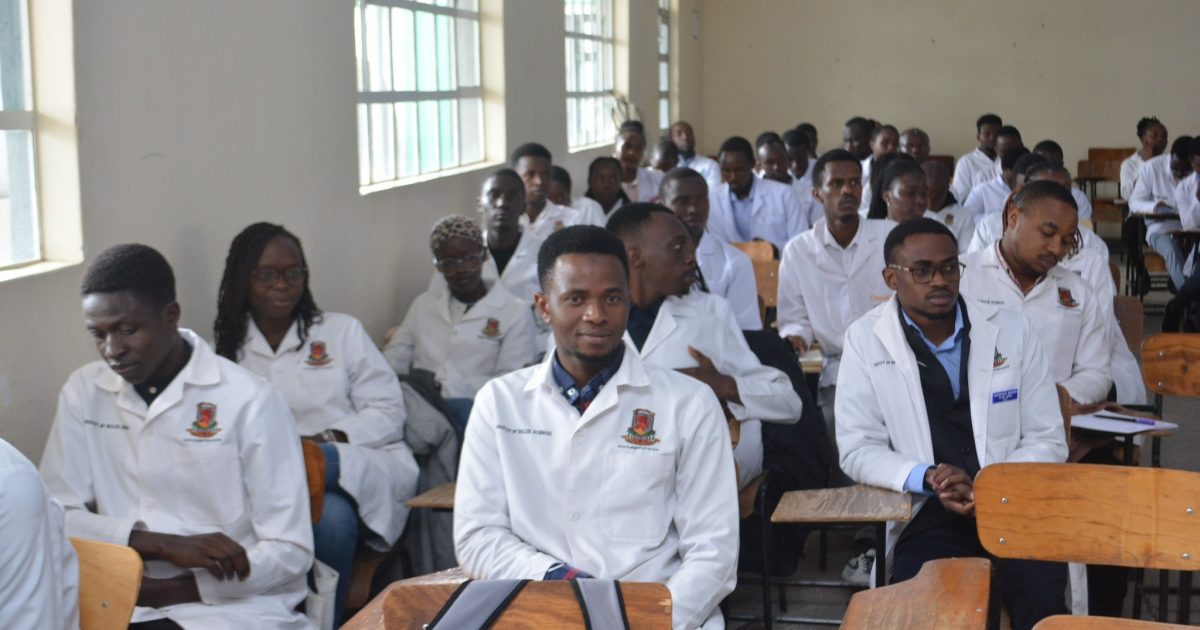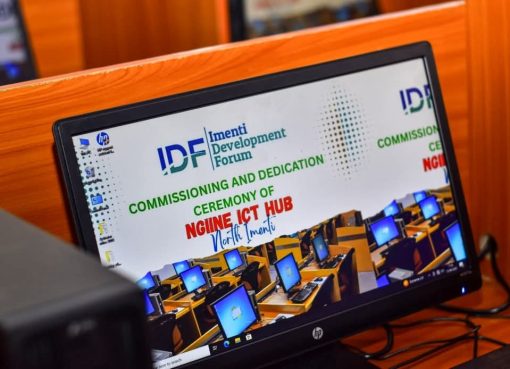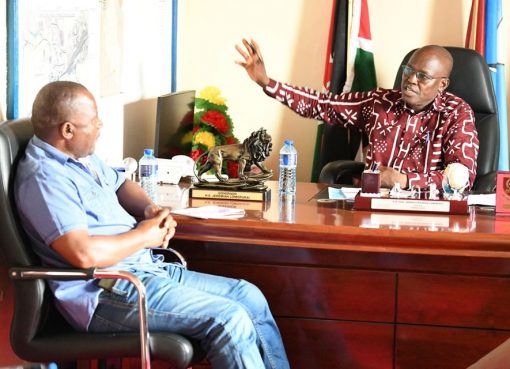More than 100 Egerton University students have undergone an intensive training program, to help them implement awareness campaigns, education programmes and community dialogues aimed at changing attitudes and behavior towards Female Genital Mutilation (FGM).
According to a specialist obstetrician and gynecologist in Reproductive Health at the University, Dr. Amos Otara, as future health professionals working in varied communities, the students were being equipped with skills and knowledge to be influential opinion leaders in changing attitudes on FGM, and playing a central role in its prevention.
Dr. Otara who is also a senior lecturer at the university, said the two-day training program that was held at the Institution’s Njoro Main Campus, targeted students pursuing Medicine, Clinical Medicine, Nursing, and Community Health, equipping them with knowledge and culturally sensitive approaches needed to handle FGM-related cases across diverse Kenyan communities.
He indicated that the skills and knowledge being imparted to the medical students were designed to empower and support them in their future professional engagements in strengthening their safeguarding response for girls and women who are at risk, and to better protect and care for victims of FGM.
Dr. Otara explained that preparing future health workers in the nationwide effort to end FGM was critical and as future front-line health workers, they would have inside knowledge of the social dynamics in the communities they would be serving and the social norms that perpetuate FGM.
“These students will be able to speed up the rapidly declining support for FGM practice as patients usually know and trust health workers working in their communities,” Dr. Otara elaborated.
In Kenya, around four million or one in five women and girls have been subjected to FGM. In some communities, this rises as high as 94 percent.
Dr Otara emphasized the importance of the training, arguing that as future health professionals, the participants will serve in rural and urban communities, navigating cross-cultural contexts, and responding to the health implications of migration, displacement, and inter-community interaction.
While noting that FGM was not confined to one region, Dr. Otara said the practice was a national and global issue, demanding an informed, compassionate, and rights-based healthcare response.
Sensitive communication approaches could help health workers effectively decline requests to perform FGM, while informing people about its serious immediate and long-term risks, he elaborated.
Through the initiative organized by Egerton University’s Faculty of Health Sciences, in collaboration with the Africa Coordinating Centre for the Abandonment of FGM (ACCAF), the students were empowered on practical tools for FGM prevention and intervention, cultural competences in handling sensitive cases and conducting advocacy and public health awareness programs against the practice.
The Don explained that the initiative focused on ensuring that graduates from the university were not only skilled clinicians but also agents of social change, adding that as respected persons in the communities, there was a need to positively engage and train them as future health workers for the prevention of FGM.
A Clinical Nurse Specialist (Medical-Surgical Nursing) and Lecturer at Egerton University, Faculty of Health Sciences, department of Nursing, Alice Maranga indicated that engaging future health workers, should be a key element in FGM prevention and response, as the country seeks to end the practice and protect the health of women and girls.
Ms Maranga highlighted the need for community education and information and Community awareness-raising activities that involve men and boys, saying this could be effective in increasing knowledge about FGM, promoting girls’ rights, and supporting attitudinal changes.
She said the initiative aimed at bolstering an improved health-care system, where the future health workers will have the capacity to manage and provide optimal services to clients who have undergone FGM and prevent the practice from occurring among those at risk.
“At the community level, a body of evidence demonstrates that health education and community dialogues with parents and religious leaders can change attitudes about FGM,” she noted.
The Chairman of the Community Health Department, Dr Ronald Obwoge, noted that with the medicalization of Female Genital Mutilation (FGM) emerging as a key trend in some parts of the world, the inclusion of future healthcare workers in campaigns against this practice is crucial.
Medicalization, a situation in which FGM is practiced by a healthcare provider in a public or private clinic, at home, or elsewhere, is gaining momentum globally.
The global prevalence of this practice is between One percent to 74 percent, according to the World Health Organization (WHO), with medicalization being highest in Sudan (67 percent), Egypt (38 percent), Guinea (15 percent), Kenya (15 percent) and Nigeria (13 percent) for women aged 15-49 years.
Dr Obwoge stated that urgent measures were needed to curtail the rising “medicalization” of FGM and to engage health workers to prevent the practice.
Dr Obwoge observed that because FGM was rooted in gender inequality and power imbalances, fighting it requires changing the cultural and social norms that increase the risk of harm to women.
This means addressing all other forms of violence and harmful practices such as child marriage, as well as physical, sexual and psychological violence.
Although outlawed by the Prohibition of Female Genital Mutilation Act (2011), FGM practice persists, posing serious public health and human rights challenges.
According to the Kenya Demographic and Health Survey (KDHS) 2022, FGM remains highly prevalent in certain communities, with rates of up to 93.6 per cent among the Somali and 86 per cent among the Samburu.
According to the Report, two in every 10 women aged 15 to 49 in the country, have undergone similar horrifying experiences to gain acceptance in their communities.
The survey indicated that in Nyamira County and the neighbouring Kisii and Migori, seven out of ten women have been subjected to the practice, despite Kenya outlawing FGM in 2011.
The statistics, according to KDHS, are even grimmer in North Eastern and Eastern Kenya, where counties like Wajir, Mandera, Marsabit, and Garissa report that eight in every ten women have undergone the banned rite.
Other counties, including Isiolo, Samburu, Narok, and parts of the Rift Valley, also show alarmingly high rates, with between three and seven out of ten women in the same age group being subjected to FGM.
The 2022 KDHS Report masks significant regional disparities. Wajir County leads with an FGM prevalence of 97.2 per cent, followed by Mandera at 95.9, Marsabit at 83, Kisii at 77.3 and Samburu at 75.6 per cent. Narok stands at 51 per cent.
FGM is recognized by UN Women as a form of Gender-Based Violence, alongside sexual, physical, emotional, and mental abuse.
As of 2020, the World Health Organization estimates that 52 million girls and women were subjected to FGM at the hands of health workers.
In Kenya, however, the rate of FGM has decreased from 38 percent in 1998 to 15 percent in 2022, according to the KDHS 2022, for every five girls (0-14 years) who have undergone the practice, one was performed by a healthcare workers. The hotspots for medicalization are in Kisii, Narok, Kajiado, Garissa, and Nairobi.
By Esther Mwangi and Esther Otieno





